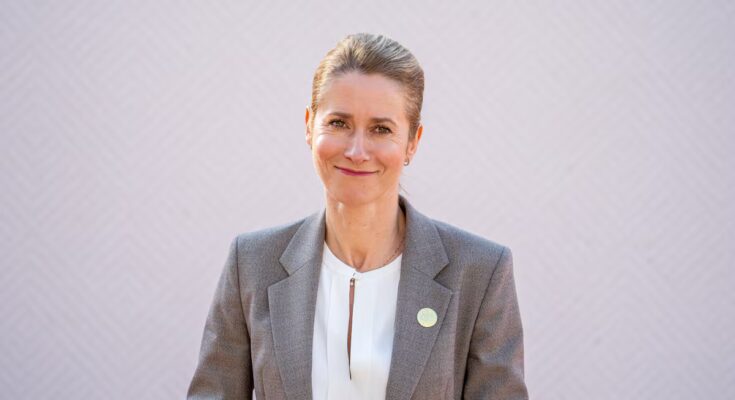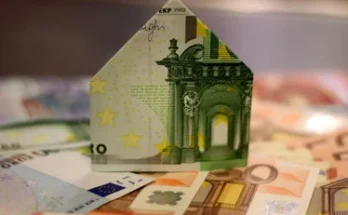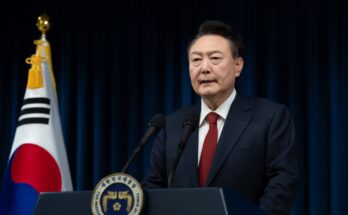Kaja Kallas (Tallinn, 48) says that, as Prime Minister of Estonia and faced with an energy crisis, she asked her citizens to reduce heating by just two degrees Celsius, and that in doing so she managed to reduce energy spending by 40%. For this reason, the High Representative for Foreign Relations of the European Union wonders why in the Colombian and Caribbean city of Santa Marta the same is not done with the air conditioning that keeps the conference center cold where, during this Sunday, delegates from 60 countries – the 27 of the European Union and the 33 of the Community of Latin American and Caribbean States, CELAC – and the EU have finished negotiating a broad joint declaration. The fourth bilateral summit, held in the shadow of US President Donald Trump, ended at dusk and the head of international relations received EL PAÍS before taking the plane back to Brussels.
Ask. Venezuela and Nicaragua did not sign the declaration signed today by the 27 countries of the European Union and the remaining 31 of CELAC. What happened?
Answer. Initially Venezuela agreed, Nicaragua did not from the beginning, but in the end they decided to withdraw from the declaration. His criticism concerned point 14, which refers to Ukraine. It’s interesting, because while we hear Venezuela complaining about failure to respect international law, it refuses to sign a statement on an apparent armed attack three years ago. They should always apply the same standard. They have been left in a Catch-22 (an absurdity or paradox, based on the title of Joseph Heller’s novel), because at the same time they want to hide behind international law, but not question when it is violated.
Q. To continue the statement, why does the text not mention the United States, when it is clear that it contains criticism of that country?
R. It’s simple: because we wouldn’t have obtained the signatures of some countries. This is how diplomacy works…
Q. Colombian President Gustavo Petro said that it was the United States that pressured some countries not to participate. What do you think of these accusations?
R. I don’t know anything about it.
Q. But the turnout was lower than expected.
R. This is true, but all countries were present. The question is with a representative of what level, but there are many reasons. In Europe, for example, it is time to discuss the budget and in many countries that previously had clear parliamentary majorities, they are now fragile, which is why prime ministers and presidents must be very present in this procedure. In a few days we will also have the African summit. For this reason I think it is better to be grateful to those who came.
Q. One of the most tense issues with the United States concerns attacks on vessels in the Caribbean and Pacific. What commitments does the EU make regarding American anti-drug operations?
R. With Latin American countries we discussed the fight against organized crime and drug trafficking. We are all concerned about this global phenomenon, which we must face together. Our response is cooperation, information sharing or learning. Now we face new challenges, such as difficulty in tracking money because criminals use cryptocurrencies to hide their transactions. We don’t want to leave Latin American countries alone, but, as I often say, simple solutions to complex problems don’t work in politics.
Q. On the other hand, the declaration can be understood as a defense of multilateralism, but at the same time calls for reform of the United Nations and the financial system. What is the proposal?
R. This multilateral system really needs reform. For example, the architecture of international finance is unfair. Countries in better conditions would be better off if those in worse conditions could grow on their own, instead of providing them with development aid. But credits are very expensive for the countries that need them most… The current system is 80 years old, it emerged when, after the Second World War, the League of Nations was replaced by the United Nations Organization. It was a great idea and the UN Charter is also very good, but we noticed that the UN does not have the ability to give an automatic response when its Charter is violated. I was recently in Kuwait, went to the museum and listened to speeches at the United Nations about the invasion of Iraq in 1990. And if you change Kuwait to Ukraine, it’s exactly the same as what’s happening now with the Russian invasion. The only difference is that then no one vetoed the resolution to carry out a military intervention, which aimed to protect a state and therefore to discourage anyone who wanted to commit aggression. Now everyone sees that it can be invaded without consequences. Maybe I’m naive, but it should be reformed so that the response is automatic.
Q. We talked about Russia, the United States, but not China, the other great power. How do you see its growing influence in Latin America?
R. As in other regions, they are trying to leverage their economic power, which is why today we also discussed how to eliminate some dependencies without creating new ones. We know this well in Europe, with our energy dependence on Russia. China uses other tools, such as electric batteries, critical raw materials or others. And countries must be very careful to avoid actors who only want to extract, and seek true alliances that create jobs and local growth and, above all, that take people into account. I’ll give you an example from Europe. In Serbia the Chinese bought a copper mine, brought workers from China and, since Serbia is not part of the EU and does not have our international standards – which may increase costs, but protect people – they removed the anti-pollution filters and the neighbors saw an increase in cases of lung cancer. This is not the European offer: ours is to work together. We need essential raw materials, it’s very clear, and we provide local jobs, growth. We partner with technology, investment or money through the Global Gateway plan and are interested in seeing our partners grow, do well. We are therefore concerned about China because of its coercive practices against our companies and because it is a country that enables Russia’s war in Ukraine.
Q. Is the Santa Marta Declaration a step that brings the trade agreement between the European Union and Mercosur closer?
R. For our part, we are working hard to take it forward. It is normal that in these large processes there are sensitivities to take into account, such as those that our farmers have in this case, and for this reason guarantees are created in the treaties. But we must also understand that the great powers want to avoid this agreement, and that they are very good at adding fuel to the fire that already exists. This is why we must be very careful in preparing for and combating these narratives.
Q. President Lula said today that the agreement will be ready in December…
R. We are optimistic and work with this goal. But, because we are 27 democracies, nothing is given and there is a lot of work to do.
Q. The process began 25 years ago, why could it be completed now?
R. Because countries that still believe in free trade want to combine and diversify their trade portfolio. Whether in Asia, Africa or Latin America, the will is there. And I think that the push comes from the need to create a large commercial area, to counter the new wave of tariffs.



